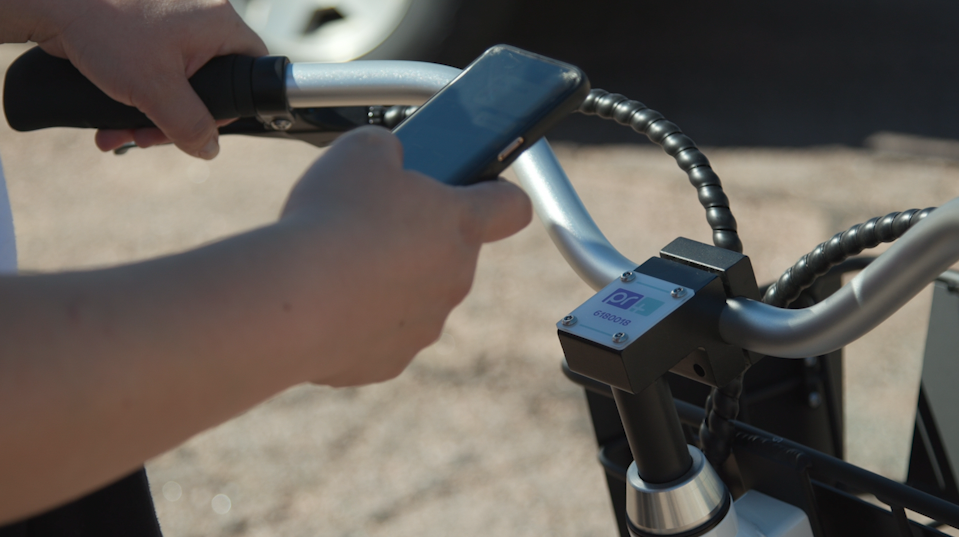Colorado Springs residents gain access to low-cost e-bikes

COLORADO SPRINGS, Colo. — Vanessa Castillo feels energized when she arrives for work at a local high school every day.
The feeling is new. Castillo used to drive to work and dealt with constant, expensive car repairs and traffic. But thanks to a program from Pike Ride — a nonprofit providing e-bikes in Colorado Springs and Manitou Springs — and the Colorado Energy Office, Castillo now commutes on an electric bicycle.
“I’ve had it for maybe a month, but I’ve already seen improvement on my mental and physical health,” Castillo said. “It’s also very fun and very safe to go about town.”
Castillo’s pedal-assisted Class 1 e-bike can travel up to 15 mph. A motor kicks in as she pedals and the speed increases when she pushes harder, but the bike still needs pedaling to run, as opposed to Class 2 e-bikes that come with a throttle.
Pike Ride operates similarly to e-scooters found around cities: riders download an app, scan a barcode to unlock access to a bike, then ride around the city. When they’re done, riders dock their bike at one of the Pike Ride stations around town where other riders can hop on the same bike.
A recent grant from the Colorado Energy Office supported Pike Ride’s purchase of 50 e-bikes, each for a resident in a designated low-income area. Those who received bikes lease the bike on a month-to-month basis for $25 each month.
Castillo used Pike Ride’s public share system for months before completing an application for the bike lease program. The timing worked out great: she learned that she’d been awarded her e-bike days after finding out her car required costly repairs. She said the $25 monthly fee is well-worth the money she saves on auto repairs and gas from driving every day. Though she still has a car and plans to keep it, the bike has become her primary transportation to get to work, grocery shop and run errands.

Pike Ride users can unlock access to the e-bikes by using an app on their phones.
Photo: Julio Sandoval, Rocky Mountain PBS
“I did it mostly for my mental health,” Castillo said of switching to an e-bike. “Even when I’m riding to work, I have more energy and I can focus better from all the physical activity, so I love it.”
Pike Ride executive director Tara McCarthy said e-bikes are likely here to stay, and cities are adapting to make their infrastructure friendlier to cyclists, rather than prioritize drivers.
Colorado Springs also prioritized multimodal mobility in its Connect Colorado Springs plan, a master plan guiding transportation in the city. These plans include bike lanes, more robust public transit and better access to bike trails.
“I think e-bikes and micro mobility in general has provided the public a new and different way to move about their community,” McCarthy said. “It’s definitely on the minds of everybody to get people out of their cars and into healthier transportation options.”
For those who are elderly or disabled, McCarthy said e-bikes can fill a gap that traditional bicycles left open: ensuring everyone can ride a bike, not just those who are able-bodied.
McCarthy also hopes to expand the program and award bikes to others who need one.
“I think e-bikes are here. I think they’re going to be here for a long time. I think pedal bikes are also going to be here for a long time,” McCarthy said.
“I think e-bikes provide more open doors for those who might be older or might need assistance to ride a bike for physical and mental health.”
Alison Berg is a Multimedia Journalist at Rocky Mountain PBS. You can reach Alison at alisonberg@rmpbs.org.
Julio Sandoval is the senior photojournalist at Rocky Mountain PBS. You can reach Julio at juliosandoval@rmpbs.org.
